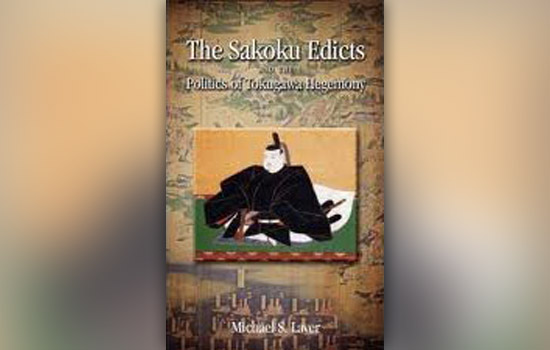RIT Historian Conducts One of the First Examinations of Japan's Sakoku Edicts
Book analyzes Japan’s ‘closed country’ prohibitions of the mid 17th century
Rochester Institute of Technology historian Michael Laver offers one of the first thorough translations and examinations of the Sakoku, or “closed country,”
A new book by Rochester Institute of Technology historian Michael Laver offers one of the first thorough translations and examinations of the Sakoku, or “closed country,” Edicts, a series of laws first established in 1635 that were designed to restrict the influence of European trade, culture and Christianity on Japanese society and continued to characterize Japan until the 1850s.
The Sakoku Edicts and the Politics of Tokugawa Hegemony provides a complete translation of the edicts and their many amendments and analyzes the cultural and historical factors that led to their development, including the growing influence of Christianity and European trade on Japan in the late 16th and early 17th centuries. Laver also examines the domestic factors that enhanced the use of the edicts by the ruling Tokugawa clan as a political tool as well as a foreign policy tool.
“It is generally known that early modern Japan was largely closed to European trade and missionary activity, but there has been little study of the actual methods used to accomplish this and how that machinery changed over time,” notes Laver, assistant professor of history at RIT. “Through this book, I hope to provide a deeper understanding of how the Sakoku Edicts developed, the many factors that influenced their evolution and the tremendous impact they had on early modern Japan.”
The Sakoku Edicts banned the practice of Catholicism, restricted foreign trade and prevented most Japanese from traveling abroad. Later additions to the edicts included the expulsion of nearly all Europeans from Japan and the creation of an anti-Christian inquisition. Japan’s closed country policy remained in place for two centuries.
Laver argues that the legal machinery used to close off Japan became more intense over time as a reaction to the perceived subversive nature of the Catholic religion and as an attempt to hold in check the powerful hostile clans within the country. Ironically, the Tokugawa used their control of foreign policy to enhance their power and prestige internally at the expense of possible resistance to its hegemony.
“This clearly shows that the edicts were not a monolithic device but an evolving foreign policy strategy that had as much to do with local politics as with Japan’s relations with foreigners,” he adds. “It also assists in understanding Japan’s relations with European countries from the early modern period and even into modern times when Japan became a part of the 19th century world order that was dominated by the West.”
Laver specializes in East Asian history and civilizations and is also the author of Japan’s Economy by Proxy in the Seventeenth Century.













